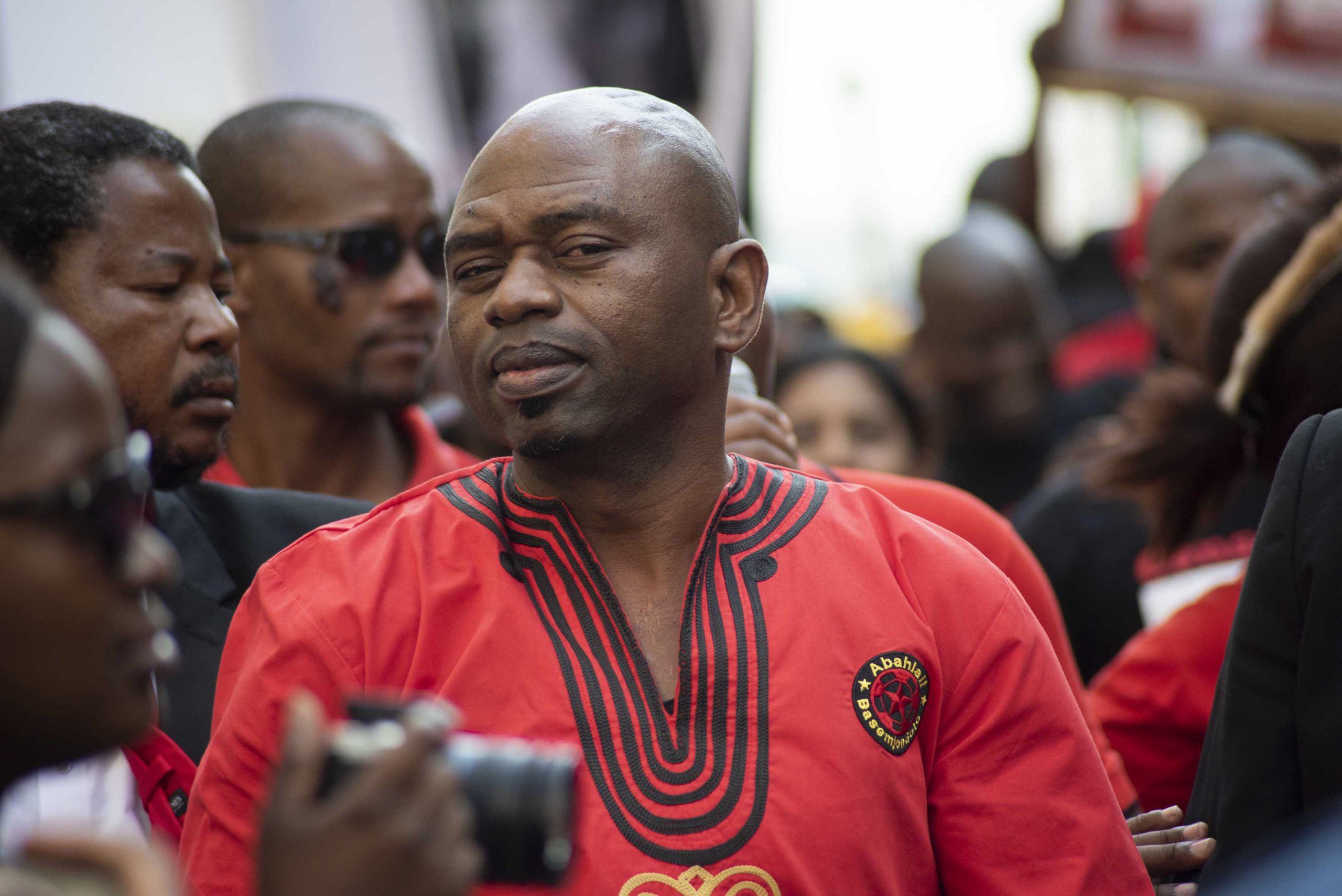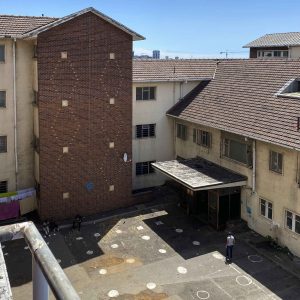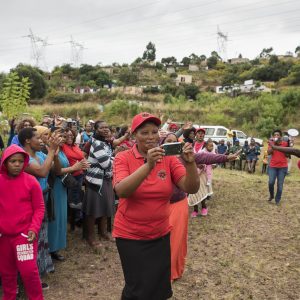Treat the people living in shacks as human beings
The dignity of all South Africans, regardless of their socio-economic status, must be recognised by those in power. Sadly, that is not the case for millions of impoverished people.
Author:
22 April 2021

S’bu Zikode, president of the shack dwellers’ movement Abahlali baseMjondolo, received the prestigious Per Anger Prize from the government of Sweden on Wednesday 21 April. This is a lightly edited version of his acceptance speech.
The price for land, for decent housing and the right to the city is paid in blood. Brutal and unlawful evictions continue to terrorise our communities.
No human being should live in substandard housing conditions, without access to basic services such as water and sanitation, where there is no road access, where there is no electricity and where there is no refuse collection.
I have dedicated my life to the fight for equal rights for all South Africans, and I am deeply honoured and humbled to stand here today and receive the Per Anger Prize – a prize named after a man who bravely resisted fascism and saved many lives.
Related article:
I want to extend my deep gratitude to the jury, the Living History Forum, [Swedish Culture] Minister Amanda Lind and Afrikagrupperna [Africa Groups of Sweden] for nominating me. We all know that many of the people of Sweden as well as their government gave strong support to our people during apartheid, so it is an honour to receive a prize like this from the Swedish government.
I have been carried through the past 15 years by the movement Abahlali baseMjondolo, a movement of the poor, of people living in shacks. We have more than 80 000 members; the majority are women. We insist that the dignity of all human beings must be recognised. We should be included in all decision-making that affects us, our right to the city should be recognised, our settlements should receive adequate services and we should be able to build our homes and communities in peace.
We wish to see a much deeper form of democracy in our country and in the world. We resist the idea that, because we are poor, we must be confined to the dark corners. We have organised in solidarity with struggles all over the world and built relationships with movements in different countries. The struggle is global.
Learning from impoverished people
The award of the Per Anger Prize means that our struggle for land, decent housing and dignity has been recognised as just and legitimate in Sweden. It is an acknowledgement that the poor have experiences and ideas from which others can learn. Learn also from the courage of the Abahlali members who have continued to organise despite repeated violent evictions, serious intimidation and assassinations.
An award for me is also an award for the movement, and for the determination and courage of all the people who have kept our movement going for 15 years, despite very serious repression, which has included arrests, death threats and murders.
Related article:
Per Anger was a brave man. Our comrades who have lost their lives – people like Thuli Ndlovu, Nkululeko Gwala and others – were brave people. Today courage meets courage. Principle meets principle.
No legitimate and democratic movement or activist should be criminalised and attacked when organising to build the power of the oppressed from below. All evictions leading to homelessness must be stopped, and those responsible for illegal and violent evictions must face criminal charges.
The poor are not poor by choice; it is the history of colonialism, apartheid and land dispossession that keep us in deep poverty. The commodification of land and state corruption keep us poor. This is why the social value of land must come before its commercial value. This is why it is important to organise to build democratic power from below. This requires building solidarity between and within struggling communities. This is what has kept us strong.
Dangerous times
It is very dangerous to be an activist in South Africa and in many countries around the world, because we are well organised and can stand firm to protect our rights. This is perceived as threatening to people in power.
There is a serious problem of political gangsterism in South Africa, and especially in the city of Durban and the province of KwaZulu-Natal. Hundreds of people have been assassinated. Corrupted politicians who enrich themselves and their families at the expense of millions of poor people of South Africa have often objected to our work. They have used the police, militarised private security guards and izinkabi – hitmen – to kill us.
Related article:
Abahlali has faced serious repression. We have been beaten, tortured in police custody, slandered in the media and subjected to open death threats. Some of us have been murdered with impunity. I am among those who have suffered serious repression – including arrest, torture, the destruction of my home, slander, and death threats.
In a period of 10 years our movement has lost 18 activists. The price for land and dignity has been paid in blood. These murders have not been investigated. Our lives count for nothing to the state and to much of society. We are treated as if we are beneath the law. This award says that our lives count to you. This kind of support forces the repressive forces that we confront to recognise that we are not people that do not count. It helps to keep us safe.
Related article:
Today I call on the people of South Africa, mostly young people as they are the future of our country and the world, to support our struggle for land, decent housing and dignity. I also call on the government of South Africa to stop evicting poor people and to stop the use of violence when dealing with poor people. I call on the government to consider putting the social value of land before its commercial value. I also call on the government of South Africa to protect and uphold our hard-won constitutional democracy.
You have my deep gratitude, and the deep gratitude of Abahlali baseMjondolo. I hope that we can work together to continue the struggle to humanise the world.
Together, we stand for dignity, respect and democracy. We are all people that count.




